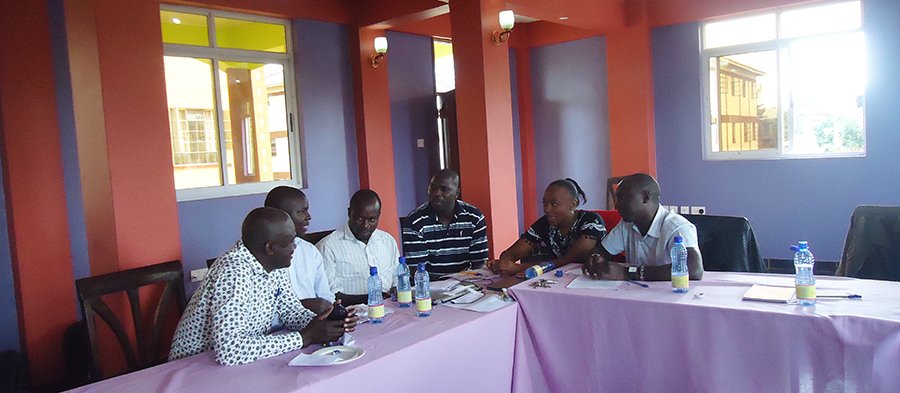Nuru prioritizes feedback. In 2015, the UN ratified the 2030 Sustainable Development Goals which defined 17 specific goals for ending poverty. The goal that relates most to the Nuru Leadership Program is number 16, which focuses on promoting “peaceful and inclusive societies for sustainable development…at all levels.” Nuru’s training on “the importance of feedback” is applicable to target number 16.7, which focuses on “ensuring responsive, inclusive, participatory and representative decision-making at all levels.”
Nuru’s feedback training offers focuses on a few key areas, starting with the importance of giving and receiving feedback. It also identifies specific tools that can be used to ensure proper and effective feedback across all levels, including 1-on-1 meetings and the importance of debriefs. Finally, rather than only training one societal group on the importance of feedback, Nuru trains all levels. After Nuru program staff and cooperative leaders receive training from the Nuru Leadership Program team, these leaders pass along training to teachers, healthcare workers, government officials and cooperative members, which include Nuru farmers and Nuru savers. Working across such diverse participants ensures a culture of feedback is present across all levels.
How does feedback promote peaceful and inclusive societies?
First, understanding the importance of feedback can help to restore agency and inclusion in decision-making. If everyone from a farmer to government official gives feedback, their voices are heard and their input is genuinely appreciated. For example, one aspect of our feedback training involves how to conduct 1-on-1s—weekly meetings between a manager and his or her staff. It is a forum where the staff member can speak honestly about issues and challenges she has faced during the previous week. In this context, the views of the staff member are communicated clearly to the manager and the staff member has more input in the development of programmatic activities. Similarly, if a farmer is able to give honest and direct feedback to a cooperative or government official, he will have increased agency and input into decisions that directly impact his life.
Because of Nuru’s training, people living in extreme poverty feel comfortable expressing their thoughts to those in traditional positions of power because all now understand the same cultural norms about the importance of feedback; and leaders are able to understand the importance of feedback in restoring agency.
Training on feedback also creates a peaceful medium for debate and discussions. During feedback training, Nuru focuses on training participants on tone of voice, body language and the importance of giving positive feedback. For example, if farmers come to cooperative leaders with specific suggestions on what they would like to see implemented, leaders who have received training will be more receptive. They will understand how to calmly consider and possibly embrace new ideas. When small groups of farmers and their government officials are able to calmly give and receive feedback, they create productive dialogue that can help relieve tensions for contentious issues that may come up at a community or district level.
Feedback also allows for groups to improve programming real-time and innovate past challenges much more quickly. An example of this comes from Nuru Ethiopia where the staff team was debating rolling out agricultural input loan packages that included a diverse selection of seed. After farmers gave feedback to the Nuru Ethiopia staff, the agricultural input loans were revised to include the seed varieties farmers requested to plant. This helped to avoid implementing a crop package that most farmers would not be able to use. It helped us as an organization to conserve our resources and focus on offering a diversified crop package that benefited our farmers.
If a community members feel comfortable with bottom-up feedback and if upper-level staff or government officials feel comfortable receiving that feedback, together they can identify gaps more quickly, develop solutions and innovate at a quicker pace.
Creating a cultural norm around the importance of feedback is one of the major goals of the Leadership Program’s training modules. By emphasizing the importance of giving and receiving feedback across all groups—Nuru staff, cooperative leaders, government officials and farmer households—communities can create strong feedback systems. These systems can help restore agency and inclusiveness, create peaceful forums for debates and discussions and allow for quicker innovations past challenges. As Nuru scales from one community to another, this feedback culture also spreads. Eventually, Nuru will scale to new districts or eventually new regions of the country. This will help to create pockets of strong and inclusive communities, which will ultimately influence the society at large and help our sector end extreme poverty and achieve the Sustainable Development Goals.


